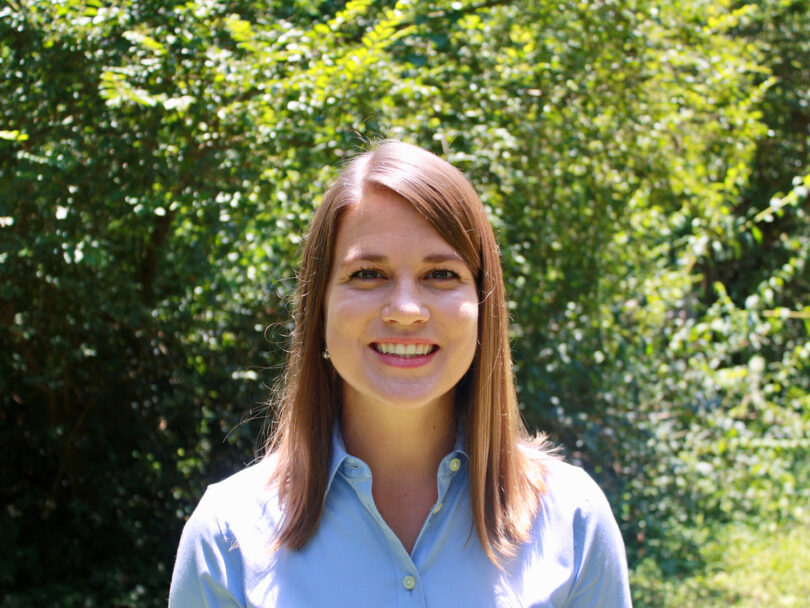Amanda Frossard, assistant professor in the University of Georgia Franklin College of Arts and Sciences department of chemistry, has received a grant from the National Science Foundation Faculty Early Career Development Program (CAREER) to study the physical and chemical properties of surfactants in atmospheric aerosol particles.
The five-year, CAREER grants, among the most prestigious awarded by the NSF, support early-career faculty who exhibit promise as both researchers and teachers, and whose work has the potential to advance their field and their institution.
Frossard’s research works to understand how the chemical composition of aerosol particles influences their properties in the atmosphere and their effects on clouds and air quality.
Frossard and her group will do field collections and laboratory experiments using high resolution chemical and physical analyses to assess the influence of surfactant molecular composition and associated properties on the hygroscopic growth of atmospheric particles. Hygroscopic growth can alter particle size and physical properties, both of which are important determinants in the influence of aerosol particles on visibility and cloud properties.
“We will do two field studies at the Skidaway Institute of Oceanography, a winter and a summer trip, to collect online measurements and samples of particles there,” said Frossard. “We know aerosol particles can grow into cloud droplets, and recent work has shown that surfactants can affect this growth. Our main goal is to figure out what surfactants there are, where those surfactants are coming from and what their properties are. These measurements can be used to better inform models of particle activation into cloud droplets.”
“Dr. Frossard’s colleagues are thrilled but not surprised that she is being recognized for the creativity of her research ideas and the productivity of her research program,” said Jonathan Amster, Distinguished Research Professor and interim head of the department of chemistry. “Her selection for an NSF CAREER Award is well deserved.”
Additionally, Frossard will expand the local Athens network of low-cost air quality sensors and bring atmospheric chemistry experiments to classroom laboratories. The education and outreach plan includes working with high school students to collect local air quality measurements, developing a new laboratory course to explore the principles of analytical chemistry through measurements of aerosol chemistry, and conducting a first-year research seminar course and a summer research experience for undergraduate students.
Frossard will supply local high schools with low-cost air quality sensors that measure total particle numbers in the atmosphere.
“My plan is to work with local high schools to have the sensors at the schools and then develop programs to teach the students about the sensors and the measurements they are collecting,” said Frossard. “Then I can work with the schools to develop a classroom activity that allows the students to ask their own questions about particle concentrations — for example comparing the summer versus the winter or what happens after it rains.”
“I love research work, and one of my favorite parts is going out into the field and measuring particles in the atmosphere,” said Frossard. “I found out that I was awarded this grant while I was on a research trip in the North Atlantic Ocean, on a ship, and I am really excited to have another field campaign to dive into.”








